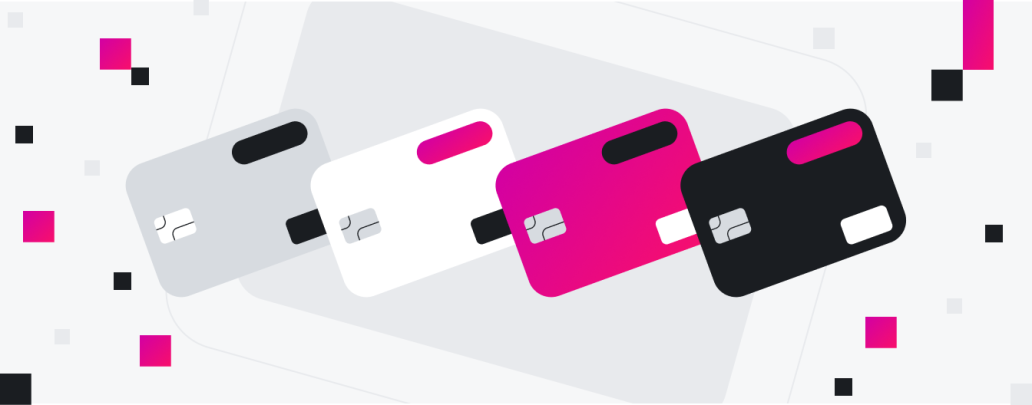How to use Airwallex to manage your gig economy payroll

Isabelle Comber
Business Finance Writer

The growth of the gig workforce is gaining pace to the point where some studies predict that it may overtake the full-time workforce in the US by 2027. In Australia and other economies around the globe, job seekers have been just as quick as their US counterparts to embrace the freedom, flexibility and reliable income that gig work represents.
In the meantime, employers are faced with the multiple challenges of labour shortages, harder economic conditions and calls to rethink work design for a better future. In response, they’ve made short-term, freelance and contract work a core part of the way they do business.
A re-evaluation of outsourced skills has led businesses to realise:
The gig economy provides unlimited access to a worldwide pool of labour and talent
Gig workers offer an effective solution for tackling shortages of many specialised skills
Filling critical customer service roles can often only be met with the input of contract and gig workers
Incorporating gig workers is key to boosting and sustaining optimal productivity levels as competition increases and businesses expand beyond borders
That said, successfully competing for labour in the gig economy can be tough. Overcoming the obstacles to engaging, managing, and compensating workers in a temporary and transient talent pool requires new approaches.
What are the main payment challenges of the gig economy?
While six in ten executives believe that gig workers will substantially replace full‑time employees within their business in the next three years, potential workers aren’t always equally optimistic. According to many of them, more needs to be done to make gigging a viable, attractive and secure option.
Traditional payroll systems often lack the flexibility that gig workers are looking for. They appreciate getting paid quickly, and businesses with efficient payment methods have the upper hand in keeping them engaged, motivated and loyal. In short, the way you handle paying gigsters can set you apart, and employers who get it right will be ahead of the game in attracting the best talent.
When it comes to paying and getting paid in the gig economy, however, both employers and employees face distinct challenges:
For employers, difficulties include:
Managing timely payments. Ensuring gig workers are paid promptly when a job is completed can be administratively challenging, especially when dealing with large numbers of employees.
Payment processing fees. Handling transactions, especially if they involve different currencies or cross-border payments, can incur significant processing fees.
Payment security. Maintaining trust with gig workers by ensuring payment systems are secure to prevent fraud and unauthorised transactions.
Some of the setbacks for gig workers are:
Unpredictable payment timing. Waiting for payments to be processed can lead to financial instability, especially if payments aren't made promptly.
Inconsistent workflow. The variability in available work can make it challenging to predict income, affecting financial planning and stability. This makes swift and speedy payment all the more valuable for gig workers.
Fee deductions. Platforms and intermediaries often take a commission or charge fees, which can significantly reduce the take-home pay for gig work.
How can Airwallex help you pay gig workers?
In the gig economy, contracted workers want fast payment based on completed jobs, rather than waiting for weekly or monthly pay cycles. By clinging to traditional payroll methods, you could be making things unnecessarily difficult for yourself and your employees.
Airwallex Issuing removes frustrating payment roadblocks by giving you the ability to generate a virtual or physical card for each new gigster, regardless of their location. Rather than having to wait, funds are sent to the card in real-time as soon as a job is finished and the gigster can use the card immediately to make payments.
The process is simple;
Businesses sign up as an Airwallex account holder to receive all the benefits of a borderless account.
When a business onboards a gigster to their Airwallex platform, they’re instantly provided with a virtual card they can add to their digital wallet and use with Google Pay and Apple Pay. They also have the option of requesting a physical card to be mailed to them.
When a job is completed, the business transfers funds from its master account to the gigster’s card.
The funds are available immediately for the gigster to make a payment.
Balance and transaction history are available via an API and can be integrated with the gigster's own app experience.
For global businesses, funds can be disbursed in a single currency to simplify reconciliation and Airwallex’s multi-currency card will complete the transaction in the gigster’s local currency.
With Airwallex Issuing, not only can you issue Corporate Cards in more than 36 countries and eliminate costly FX conversion fees and transaction fees, there’s also no need to lock in spend or worry about card production, transaction processing or balance management – our simplified back end processing takes care of everything.
Issue multi-currency cards at gig-economy scale
Ensuring gig economy workers get paid promptly and smoothly is a smart move for businesses. With Airwallex Issuing, handling payments to both local and international contractors is effortless. Plus, providing them instant access to their earnings strengthens the working relationship.
Tackle gig economy hurdles head-on with savvy, efficient solutions that cut costs and streamline processes. Benefit from lower foreign exchange fees and improved payment handling into the bargain.
Sign up and create your borderless account now.
Disclaimer: This information doesn’t take into account your objectives, financial situation, or needs. If you are a customer of Airwallex Pty Ltd (AFSL No. 487221) it is important for you to read the Product Disclosure Statement (PDS) for the Direct Services, which is available here.

Isabelle Comber
Business Finance Writer
Izzy is a business finance writer for Airwallex, specialising in thought leadership that empowers businesses to grow without boundaries. Izzy has more than four years of experience working alongside Aussie startups and SMEs, having previously worked at one of the country’s leading HR tech companies. Izzy’s diverse experience across business operations, from people to finance, brings a unique perspective to her current role.
Posted in:
Airwallex news

